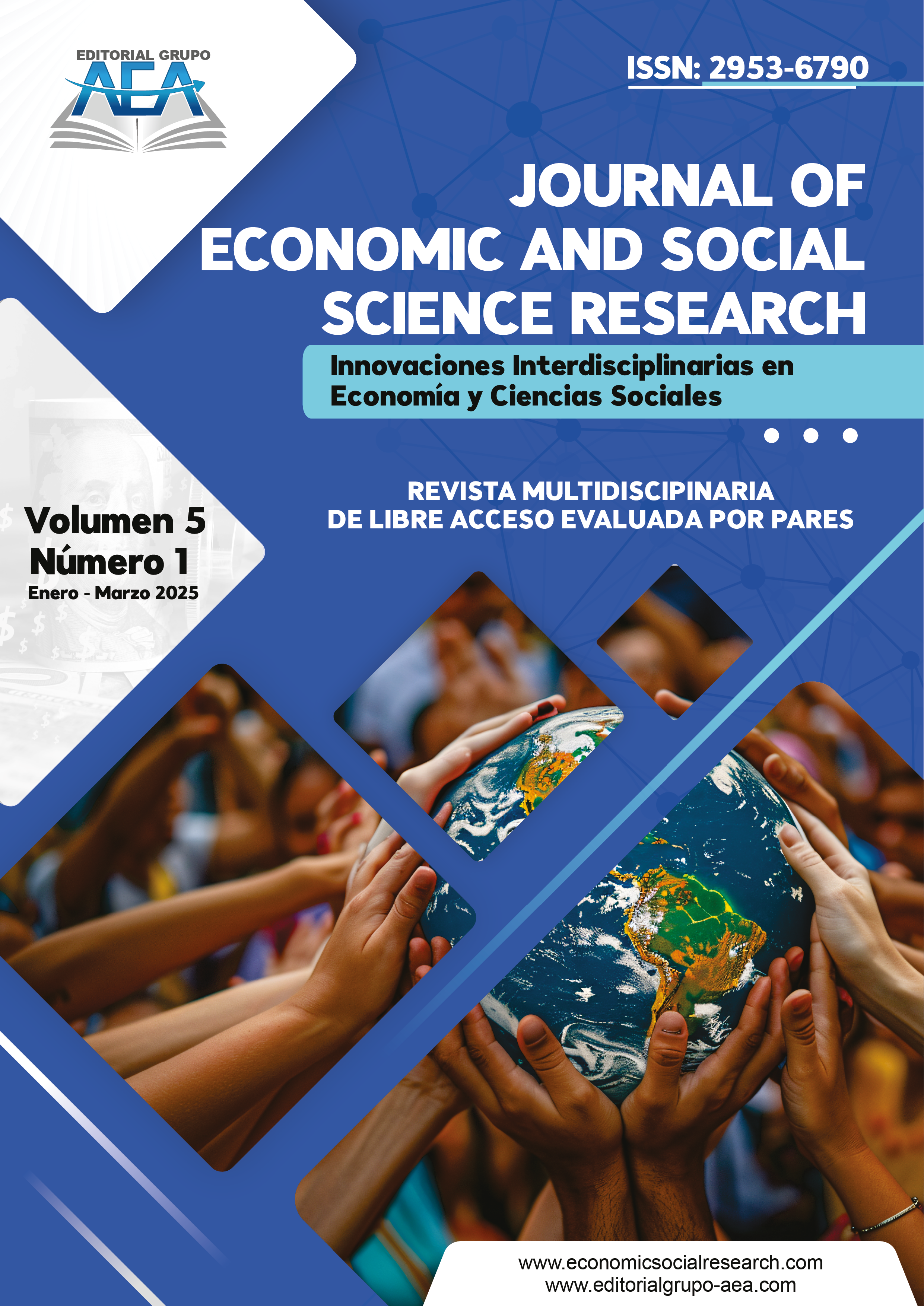Smart airport: Technological adoption by passengers at "Mariscal Sucre" international airport
Main Article Content
Abstract
This study analyzes the technological adoption by passengers at the "Mariscal Sucre" International Airport in Quito, Ecuador. Specifically, it examines how the implementation of technological tools in airport processes such as check-in, baggage handling, and boarding enhances passengers' overall satisfaction and improves the airport's operational efficiency. Additionally, it explores whether demographic factors, such as age, influence technological adoption and acceptance. Lastly, it seeks to assess the degree of acceptance among passengers toward new technological tools designed to address emerging needs.The study employed a mixed-methods approach, analyzing quantitative data, such as levels of acceptance, and qualitative data, such as customer satisfaction. The findings demonstrate that factors like age influence technological adoption. These insights underscore the importance of designing digital interfaces that are accessible to different passenger groups, fostering a technological environment that can be replicated in other airports to promote innovation and enhance business competitiveness.
Downloads
Article Details
Section

This work is licensed under a Creative Commons Attribution-NonCommercial 4.0 International License.
How to Cite
References
Airport, Q. I. (11 de Marzo de 2024). QUIPORT. Obtenido de https://www.aeropuertoquito.aero/quito-airport-is-recognized-as-the-best-in-latin-america-and-the-caribbean-in-the-category-of-5-to-15-million-passengers/?lang=en
Amphai B, R. Y. (2024). Travelers' perception of smart airport facilities: An X (Twitter) sentiment analysis,. Journal of Air Transport Management(ISSN 0969-6997), 102600. https://doi.org/10.1016/j.jairtraman.2024.102600 DOI: https://doi.org/10.1016/j.jairtraman.2024.102600
Buhalis, D., & Amaranggana, A. (2014). Destino Turístico Inteligente. Información y Comunicación de Tecnologías en Turismo.
Calista, A. (2022). The Impact of Airport Service Quality on Passenger Satisfaction. The Hong Kong Management Association , 160.
Erazo-Luzuriaga, A. F., Ramos-Secaira, F. M., Galarza-Sánchez, P. C., & Boné-Andrade, M. F. (2023). La inteligencia artificial aplicada a la optimización de programas informáticos. Journal of Economic and Social Science Research, 3(1), 48–63. https://doi.org/10.55813/gaea/jessr/v3/n1/61 DOI: https://doi.org/10.55813/gaea/jessr/v3/n1/61
Galarza-Sánchez, P. C. (2023). Adopción de Tecnologías de la Información en las PYMEs Ecuatorianas: Factores y Desafíos. Revista Científica Zambos, 2(1), 21-40. https://doi.org/10.69484/rcz/v2/n1/36 DOI: https://doi.org/10.69484/rcz/v2/n1/36
Galarza-Sánchez, P. C., Agualongo-Yazuma, J. C., & Jumbo-Martínez, M. N. (2022). Innovación tecnológica en la industria de restaurantes del Cantón Pedro Vicente Maldonado. Journal of Economic and Social Science Research, 2(1), 31–43. https://doi.org/10.55813/gaea/jessr/v2/n1/45 DOI: https://doi.org/10.55813/gaea/jessr/v2/n1/45
García-Peña, V. R. (2023). Desarrollo y Uso de Aplicaciones Móviles en el Contexto Ecuatoriano. Revista Científica Zambos, 2(3), 1-15. https://doi.org/10.69484/rcz/v2/n3/46 DOI: https://doi.org/10.69484/rcz/v2/n3/46
Herrera, A. (2018). Innovaciones en la tecnologia aeroportuaria. Secretaria de coumincaciones y transporte, 1476.
Hyeon, J., & Jin, W. (2019). The Effect of Airport Self-Service Characteristics on Passengers. Journal of Distribution Science , 10.
Lee. (2020). Customer focus takes off. The TQM Magazine, 37-41.
Monge, M., Fernández, M., & Curiel, M. (2020). Aeropuertos inteligentes. Cuadernos de turismo.
Newbold, A. (2020). Transforming a functional airport . Journal of Airport Management, 106-1114. DOI: https://doi.org/10.69554/HFMC1079
Nexus. (2022). Nexus Integra. Obtenido de https://nexusintegra.io/es/smart-airports-transformacion-digital-aeropuertos/
Nigel Halpern, D. M.-S. (2021). Segmentación de las preferencias de los pasajeros en el uso de tecnologías digitales en los aeropuertos de Noruega. Journal of Air Transport Management, 91. https://doi.org/10.1016/j.jairtraman.2020.102005 DOI: https://doi.org/10.1016/j.jairtraman.2020.102005
Ozkan. (2021). Segmentación de las preferencias de los pasajeros en el uso de tecnologías digitales en los aeropuertos de Noruega. Revista de Gestión del Transporte Aéreo.
Pant, P. (2022). Technology social practices by Millennials and Gen Z at airport departure terminals. Tourism Management Perspectives. DOI: https://doi.org/10.1016/j.tmp.2022.100978
Poulak, I., Elen , P., Konstantinos , M., Avraam, A., & Sevasti , M. (2021). Digital technologies and innovation in airport services: a benefit model approach. Journal of Air Transport Studies. DOI: https://doi.org/10.38008/jats.v12i2.171
Rajapaksha, A., & Jayasuriya., N. (2020 ). Aeropuerto inteligente: una revisión del futuro de la operación aeroportuaria. Revista global de investigación empresarial y de gestión, 25-34.
Sharma, K. (2024). Assessing Passenger Satisfaction with Smart Airport Technologies: An Empirical Study. International Journal for Multidisciplinary Research, 17.
Signh, A. (2018). Evaluating Passengers’ Perceived Service Quality Towards . Self service technologies service, 80.
Sooyoung, C., Chaeyoung , M., Keunjae , L., Xinwei , S., Jinsoo , H., & Insin , K. (2024). Exploring Smart Airports’ Information Service Technology forSustainability: Integration of the Delphi and Kano Approaches. Sustainability. https://doi:10.3390/su16208958 DOI: https://doi.org/10.3390/su16208958
Tan, J. H., & Tariq Masood, M. (2021). Adoption of Industry 4.0. Electrical Engineering and Systems Science, 25.
Viktoriia Ivannikova, D. S. (2021). Estimación de la influencia de las tecnologías innovadoras en los procedimientos de procesamiento de pasajeros en el aeropuerto. (I. 2352-1465, Ed.) Estimation of the innovative technologies influence on passengers processing procedures at the airport,, 59, 127-136. https://doi.org/10.1016/j.trpro.2021.11.104 DOI: https://doi.org/10.1016/j.trpro.2021.11.104





